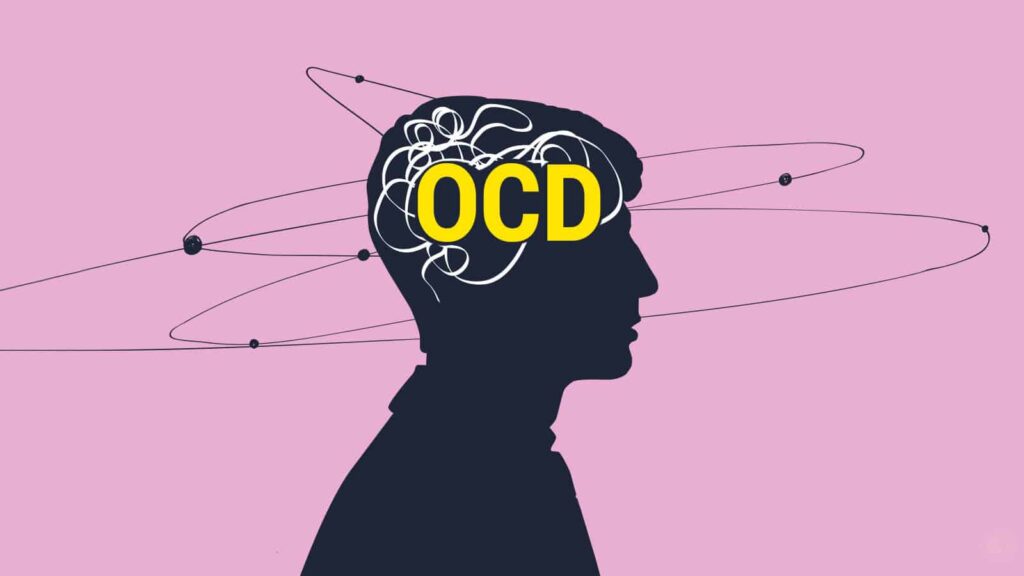Enablement is defined as “the act of providing someone with the means or opportunity to do something”. When it comes to OCD, enablement can take on a variety of different forms. It might be something as simple as giving in to demands for reassurance or agreeing to perform compulsions. In this article, we will learn different tips on how to stop enabling.
Contents
What Does “Enabling OCD” Mean?
 Do you have a loved one with OCD? Do you find yourself enabling their OCD behaviors? If so, you’re not alone. Many people who love someone with OCD enable their behaviors without even realizing it. But why do we do this?
Do you have a loved one with OCD? Do you find yourself enabling their OCD behaviors? If so, you’re not alone. Many people who love someone with OCD enable their behaviors without even realizing it. But why do we do this?
There are a few reasons. First, we may not understand what OCD is and how it works. We may think that if we just go along with what our loved one wants, they’ll be able to snap out of it. Second, we may be afraid of upsetting them or making them worse. And finally, we may feel like it’s our responsibility to make sure they’re okay.
How To Stop Enabling OCD?

People with OCD often seek reassurance from others to help soothe their anxiety. But what if you’re the one getting asked for reassurance all the time? If you find yourself constantly enabling someone with OCD, it might be time to reassess your role in their life.
Educate Yourself About The Condition
There are many resources available to learn about OCD. Books, internet articles, and support groups are all excellent places to start. The more you know about the condition, the better equipped you will be to deal with it. Once you understand how OCD works, you can begin to develop coping mechanisms and strategies to deal with it.
Start Setting Boundaries
One of the best ways to start setting boundaries with someone who suffers from OCD is to start a blog. This can be a great way to keep track of your thoughts and feelings, as well as help you communicate with others who might be going through similar experiences. It can also be a great outlet for venting frustrations and sharing tips and advice.
Practice Self-Care
The second step is to practice self-care. If you’re constantly putting yourself last to accommodate your loved one’s OCD, you’re going to become burnt out very quickly. Make sure to schedule time for yourself – even if it’s just half an hour a day – to do something that makes you happy. This will help reduce your stress levels and make it easier for you to deal with your loved one’s OCD.
Learn To Respond
One way you might enable OCD is by trying to “fix” things for the person with OCD. For example, if they are obsessively washing their hands, you might offer to wash their hands for them. This might seem like a kind gesture, but it reinforces the obsessive behavior and makes it more likely that they will continue washing their hands excessively.
What difference Between Helping and Enabling?
It’s important to know the difference between helping and enabling when it comes to OCD. Helping means providing support and assistance in a way that empowers the individual to manage their condition. Enabling, on the other hand, means doing things for the person with OCD that they can and should be doing for themselves.
Enabling can make OCD worse by preventing the individual from learning how to cope and manage their symptoms effectively. It can also lead to codependency, which can be damaging to both parties involved. If you’re not sure whether you’re helping or enabling, it’s best to err on the side of caution and ask the person with OCD what they need and want from you.
When To Seek Professional Help?
 If you are struggling to manage OCD on your own, it may be time to seek professional help. A therapist can provide you with the tools and support you need to manage your OCD. If your OCD is severe, you may also need medication. Don’t be afraid to reach out for help if you are having trouble managing your OCD.
If you are struggling to manage OCD on your own, it may be time to seek professional help. A therapist can provide you with the tools and support you need to manage your OCD. If your OCD is severe, you may also need medication. Don’t be afraid to reach out for help if you are having trouble managing your OCD.
Conclusion
If you’re struggling with enabling OCD behaviors, know that you’re not alone. Many people have this problem and there are ways to overcome it. By seeking professional help, practicing self-care, and building a support network, you can begin the journey to recovery.
Hope this article was of help to you! If you are suffering from OCD, you may seek help from Therapy Mantra. We have a team of highly trained and experienced therapists who can provide you with the tools and skills necessary for overcoming OCD. Contact us today to schedule an online therapy or download our free OCD treatment app on Android or iOS for more information.


